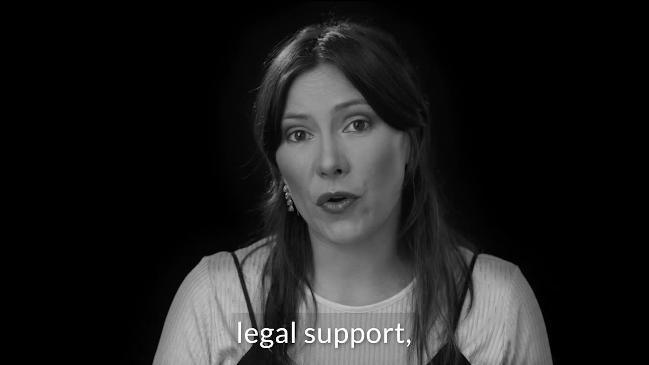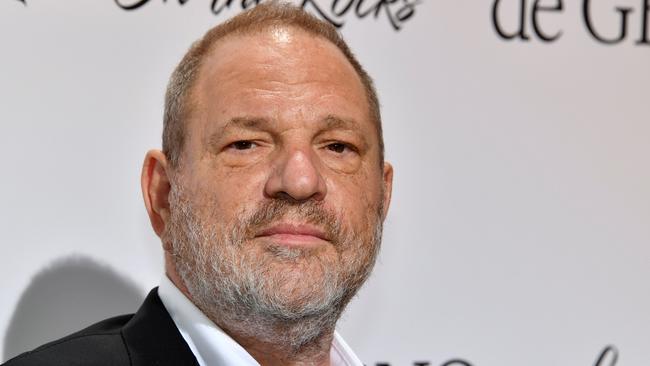If blokes don’t support change, leadership fails
SEXUAL harassment flourishing in the workplace is a failure of leadership. And it’s time blokes stepped up and added their voices to the chorus, writes Stuart King.

Rendezview
Don't miss out on the headlines from Rendezview. Followed categories will be added to My News.
IN many ways Australian businesses have made leaps and bounds in diversity and inclusion — and plain old fairness — but that doesn’t mean there aren’t still egregious examples of sexual harassment, some of which reach our courts but many examples of which result in women quietly leaving their jobs.
What many of these cases come down to is a failure of leadership.
I know about leadership. During my 30-year police career, I led men and women in dangerous situations including life-threatening events, riots, demonstrations and significant community events. I know the sliding door moments presented to leaders. To be a leader you need followers. To be a leader you need the respect of those who follow. To be a leader is hard. But when you get it right, amazing things are possible.
Since 2008 I have been a leader in supporting organisations in preventing inappropriate workplace behaviour.
Cases like the one against then David Jones CEO Mark McInnes for example, represent a failure of leadership.
The highest levels of an organisation must set an example. Any failure to do so means those people in positions of power carry the responsibility of damage to brand and reputation.

As an officer in the Victoria Police and through these past ten years in business, I have seen the best and the worst of people. One thing I have learned is this: people who abuse their power are allowed to exist only because people in positions of authority allow them to. Without oxygen, fire does not burn.
Inappropriate workplace behaviour is an issue the whole of the community must solve. If blokes don’t become part of this movement, we fail to demonstrate leadership. We all know women we respect and love. I am married to an amazing business woman, and I have young women in my family who work. I care about the environment they work in and the experience they have while at work. I care about the experience the men in my family have as well.
I have seen the damage inappropriate workplace behaviour causes. I have seen the health costs, the personal cost, the suicides, the relationship cost and the cost of lost productivity not to mention the reputational damage to brand.
My contribution to change has been through leading world-first research into workplace behaviour risk in Australia. I have since shared the results with those who are part of the #MeToo movement, and anyone else that might be interested; leadership also means sharing knowledge for the common good.
Here is one story of the hundreds we received during our research where the result of poor leadership was experienced:

“This takes place nearly every day. It ranges from men trying to put their hands down my top to trying to kiss me and ‘feel me up’. They make inappropriate advances to me and when I take it to my manager he just laughs. Generally, there are people around when this happens but it gets worse when no-one is around. One employee came around to my house in the middle of the night, banging on my door and texting me. My manager is someone I thought I could go to but, nothing changes. I have to leave my job.”
And another: “Whilst one of my female colleagues was bending over, a male colleague came up behind her and simulated sex. No one said anything to the guy.”
Our research revealed people under 34 years of age are most at risk, making it a workplace issue that affects the next generation of potential leaders. It also showed that workplace bullying was motivated by a similar driver to sexual harassment; the need for power over another. Sadly, 37 per cent of people reporting sexual harassment felt that no-one cared and were told to “toughen up” by their manager.
Alarmingly, 24 per cent of cases reported that organisations either did nothing or made matters worse and 11 per cent of people who experienced sexual harassment felt sad, alone, and contemplated suicide. Almost a third of people did not report sexual harassment, nearly a quarter took long term sick leave of more than 30 days and 10 per cent simply resigned after an incident. Any way you look at it, when sexual harassment happens, it has a huge impact on the workplace.
Experience has shown me that people know inappropriate behaviour when they see it. If leaders fail to stop bad behaviour, those observers see the failure and are left with the view that inappropriate behaviour is permissible. All that does is make more people vulnerable, because bad behaviour becomes the norm rather than the exception. That needs to stop.
Blokes, it’s time we stepped up and added our voices to those calling for change; it’s time we said “enough”. Who’s with me?
Stuart King is the Managing Director of Risk to Business and a former member of Victoria Police.


